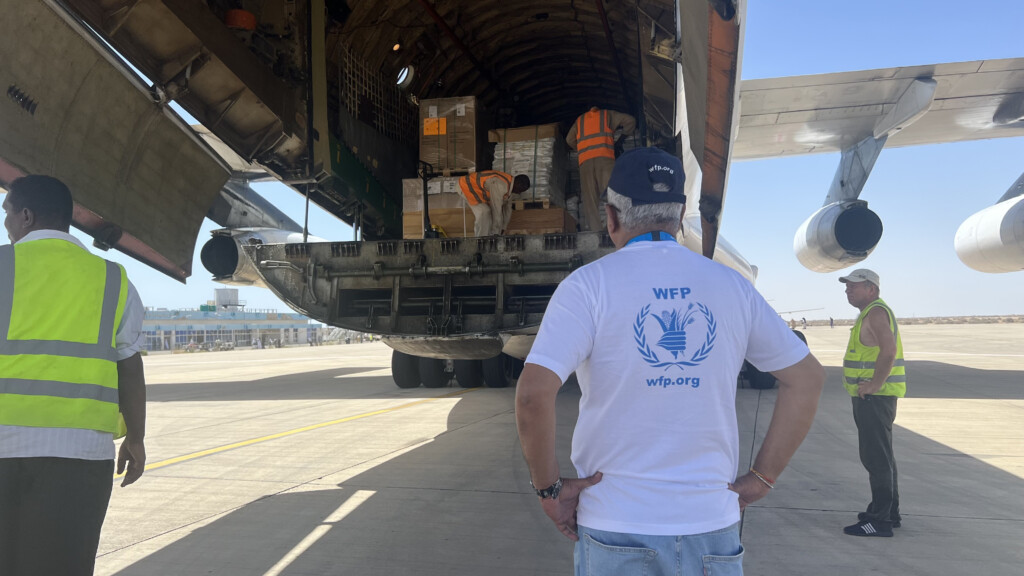Sudan committee: ‘Coordinated response to facilitate humanitarian aid’

Humanitarian aid cargo lands at at Port Sudan airport in May (File photo: WFP / Mohamed Elamin)
The recently formed Joint National Committee for Humanitarian Emergencies held its first meeting in Port Sudan, capital of Red Sea State on Thursday, chaired by Sovereignty Council member Lt Gen Ibrahim Jaber. Graham Abdelgader, acting Minister of Culture and Information, told the press yesterday that the meeting discussed taking the necessary measures to improve facilitating entry visas, speed up clearance and distribution operations, address procedures for those providing humanitarian aid, and reconciling vertical relations between the National Committee and committees in the states.
The meeting stressed the need to coordinate between shipping companies, adding that the committee deliberated on the role of the state in aiding and relief of displaced Sudanese refugees, and the importance of the state playing its role in this aspect and reviewing the presence of foreign refugees in the country, Abdelgader said.
The committee decided to find a headquarters for the National Committee for Humanitarian Emergencies, allocate a single point of contact and activate the role of state commissions to achieve joint cooperation to support those affected by the war.
Port Sudan is always a major logistical hub for Sudan’s foreign trade, and since the outbreak of hostilities in April compromised security for the government and its agencies in Khartoum, the SAF High Command, most Sudanese ministries, foreign ambassies, UN agencies, and organisations, moved to temporary offices in Port Sudan, which has become a de facto ad interim capital.
The findings of the committee follow the agreements made this week during the first round of talks facilitated in Jeddah by Saudi Arabia and the USA, in partnership with the African Union and the Intergovernmental Authority for Development (IGAD) in the Horn of Africa, during which the Sudan Armed Forces (SAF) and paramilitary Rapid Support Forces (RSF) were unable to agree on the implementation of a ceasefire, however the facilitators confirmed that “agreement has been reached on steps to facilitate increased humanitarian assistance and the implementation of confidence-building measures”.
In Sudan, the quest to provide essential aid to those in need is riddled with challenges, including bureaucratic obstacles and insecurity. Humanitarian organisations lament delays in processing Sudanese entry visas for foreign aid workers.











 and then
and then